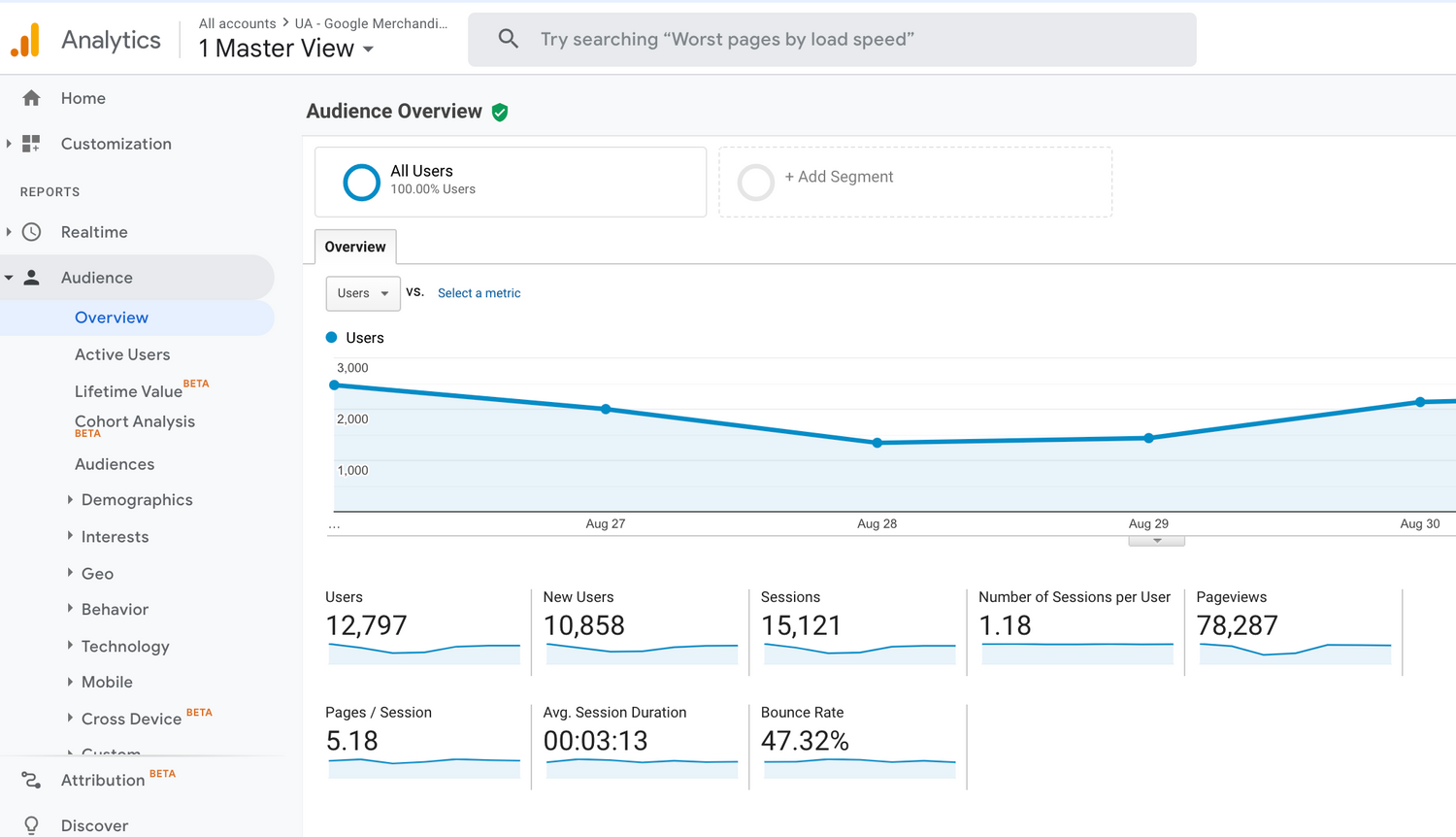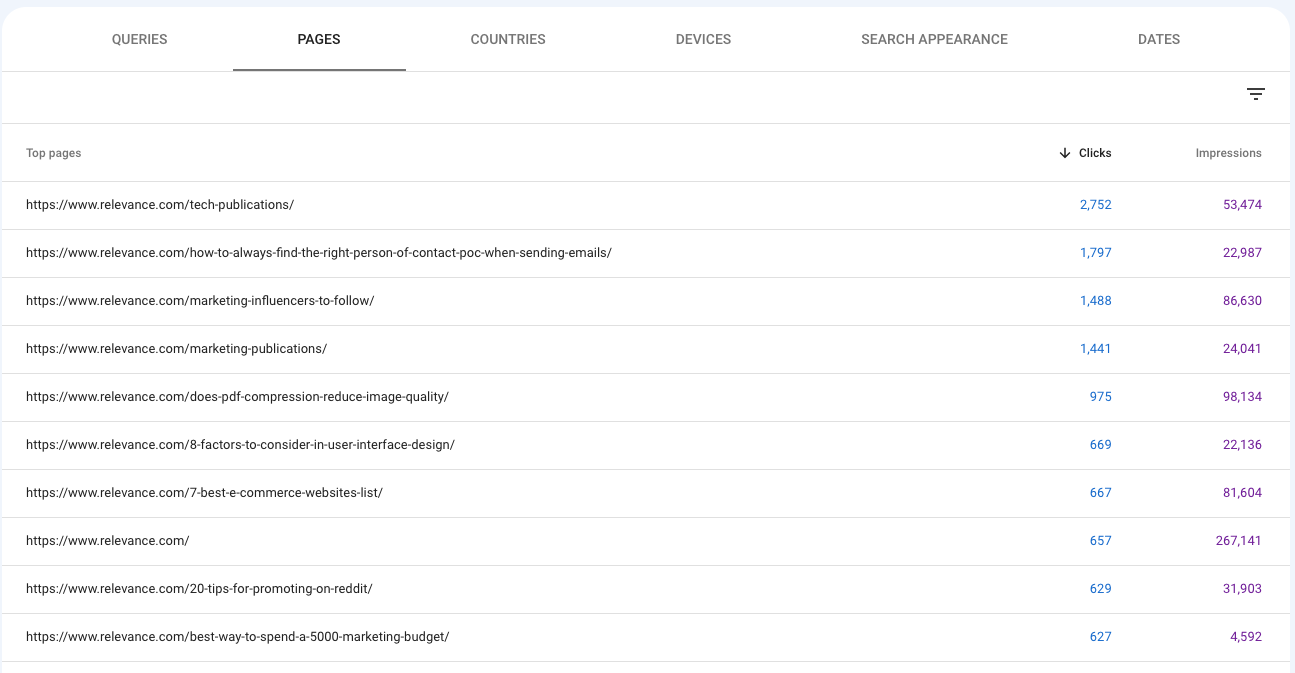Abraham Maslow said, “If all you have is a hammer, everything looks like a nail.” When it comes to search engine optimization techniques, it’s important to make sure you have the right tools for the job. Otherwise, you might end up with SEO content that shines in one area but misses the mark in another.
Which SEO tools do you absolutely need, and which can you skip? And is it possible to do SEO yourself for free? Let’s explore these questions and more.
SEO tools are programs that help you use SEO techniques for your website. With these tools and techniques, you can work to improve your website’s ranking and appearance on the search engine results page (SERP). Over time, a well-designed strategy can earn you a high volume of traffic that’s organic - meaning you haven’t paid for it.
Of course, organic traffic isn’t free. It takes resources to research and develop your strategy. And it takes even more resources to deploy it. You must plan the content, create it, and promote it with organic tactics like backlinks and social sharing.
But done right, the return on your initial investment in SEO will be astonishing. With the right tools, your SEO strategy can build your authority and bring in qualified organic traffic for years to come.
In short, yes. Armed with some foundational knowledge and valuable tools, you can get started on SEO basics by yourself. Some marketers and business owners prefer to start this way.
If you have the time to invest in self-learning, a DIY approach is a good way to get some hands-on SEO experience. That experience will contextualize any work you do with an expert down the road and help you make better decisions.
However, if you don’t have time to spend learning SEO and need results right now, it might make sense to hire an expert. That could be an in-house specialist or a full-service SEO agency.
There are both paid and free SEO tools available to boost your efforts. Some of the best SEO tools for beginners are the free versions of paid tools. As you start to make progress, you’ll eventually run into features that are only available for paid users.
Using a trial or free version will allow you to learn what the tool does and decide whether it’s worth paying for a more robust version. You don’t need a tech stack of 10 expensive SEO tools. Instead, try several as you build out your systematic SEO process. Take note of where you consistently hit a wall with free tools.
Evaluate: Is there a way to gather the desired information manually? Can you build that into your process? How much time would you save with the paid tool? Often, it’s worth it to pay for a feature that buys back your team’s time for more strategic work, and less data entry and basic research.
The functionality and cost of SEO tools vary widely. Many of the big players in the SEO tech space position themselves as all-in-one solutions. Their target customers are large brands in competitive industries.
These companies have a lot to gain from dialing in their SEO efforts and capturing the top SERP rankings for all their target keywords. With such a high ROI, enterprise-level SEO platforms can cost tens of thousands of dollars per year.
However, there are also free SEO tools and everything in between. Tools that are less comprehensive than the big players but still sophisticated can cost around $50-$100 per month depending on the level of functionality you need. Typically, you’ll need to pay for any tool that gives you access to exclusive information like competitor analysis.
Most SEO tools are designed to help with the research that goes into an effective SEO strategy. They provide data you don’t have access to, or quickly synthesize data that would take a long time to pull together.
And, well, we don’t have to tell you about the importance of rooting your strategy in data. It takes a lot of time and resources to create high-quality content with a chance of ranking. Even if your marketing budget is in the millions… you can’t afford a “spray and pray” approach to SEO.
Here are a few ways you can use SEO tools to build a data-driven plan:
Chances are, once you start digging into your SEO tools of choice, you’ll be blown away by the data available to inform your SEO strategy and tactics. The most successful brands are using tools for SEO, and you should take the opportunity too.
Yes, as the world’s largest search engine, Google has several free tools that are valuable for beginners and experts alike. They can give you baseline information and complement any paid tools or services you might use.
The three main Google SEO tools are Google Analytics, Keyword Planner, and Search Console. We’ll talk about all three as well as some of the leading paid SEO tools on the market.

What are the best SEO tools for digital marketing? It depends. There are tools for each phase of your SEO plan. Most of the huge, all-in-one solutions have features that can help with every phase - and price tags to match.
Should you invest in one of these all-inclusive platforms? You might decide that approach works best for your organization. But first, let’s pour one out for our brothers and sisters who have fallen talk about falling for to the SEO tool “paradox of choice.”
Getting sudden access to 50+ new features can be paralyzing. Without the right context and experience, you might feel unsure how to use your new platform effectively… and therefore, not use it at all.
To avoid this, you can put together an efficient plan by choosing to pay for specialized tools where you need them most. Or, if you don’t have an in-house SEO expert to manage a suite of tools, it might make more sense to hire an agency.
High-performing content starts with choosing the right on-page SEO keywords. Sure, you can win some organic traffic with excellent content even if you haven’t chosen a keyword. But since you’re spending all that time on content, don’t you want to get more than “some traffic”? Don’t you want to get the most traffic you can?
That’s the purpose of researching and optimizing to for keywords. It’s not keyword stuffing. It’s not “black hat SEO.” It’s simply adding a strategic layer into your content creation process. We’ve said it before, elegant content doesn’t pay the bills. Strategic content does. And the best SEO content is both.
What are the best SEO keyword research tools? We like Ahrefs’s keyword generator. It provides volume and difficulty metrics for any keyword. For a free tool, try Google’s keyword planner. You can enter your website to see keywords that match your existing content. You can also get volume forecasts.
Before you can create new content and deploy new SEO tactics, you have to know how your current site is performing. There are a few tools to help in this area. SEMRush’s website audit tool will give you a report on the technical aspects of your site. You’ll easily identify concerns and opportunities with elements like site speed, crawlability, and internal linking.
To assess your existing content’s performance, Google Analytics has you covered. You can build custom reports on your most important content metrics, like:
Google Search Console also has several features designed specifically to help you check your website’s current search performance. You’ll be able to answer:

The information you uncover when auditing your site will help you optimize it. As you’re creating new content, you can also use SEO tools to ensure it’s optimized and ready to put its best foot forward. Among the big SEO players, SEMrush and Moz both have features to help optimize your content.
If you host your site on WordPress, you can also use a search optimization plugin like Yoast. In addition, newer tools like Frase.io use artificial intelligence to help you build and optimize your content.
All these content optimization tools are designed to give your content has the best chance at ranking for your target keyword. They’ll help you make sure the keyword appears in all the right places and including meta data fields. Some of them also look at the content currently ranking for your keyword, and then provide additional keywords to include and questions to answer.
Building backlinks is an off-page SEO technique you can’t afford to skip. One of the best ways to target publishers for future backlinks is to look at who has linked to your content in the past. Serpstat’s backlink analysis tool provides insights like number of backlinks, referring domains’ quality scores, and competitor backlinks.
If you don’t need that much detail, you can look at the Links report in Google Search Console. You can also find insights into the engagement of your backlink traffic in Google Analytics. Here’s how:
You might need to use data from any or all of these sources to put together a well-rounded view of your backlink performance. You know what they say: The more data, the merrier.
Search engine optimization is a broad field that can be overwhelming if you don’t know how to prioritize the work. And when it comes down to it, this is what SEO tools help you do. They provide data and context to help you figure out which elements of your SEO strategy are the most important.
Without the right tools, your SEO marketing strategy will fall flat. You won’t get the results you expected. And worse, you’ll waste a lot of effort doing work that a program could’ve done in a fraction of the time.